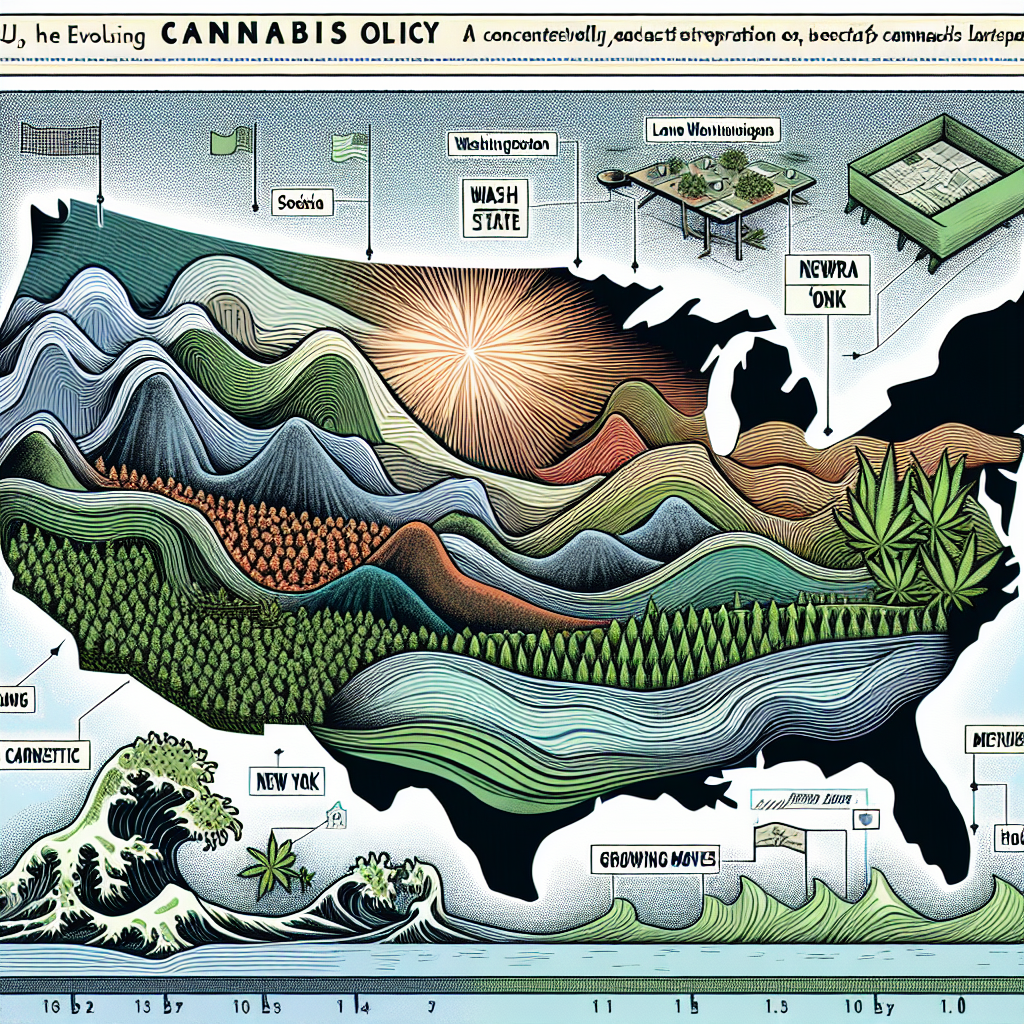
The Complex Landscape of US Cannabis Policy
The evolving landscape of cannabis legalization across the United States presents a mix of political, social, and economic considerations that continue to influence public policy and industry growth. Recent developments in states like Washington and New York, along with anticipated changes in federal policy, highlight the complexities of regulating and supporting the cannabis industry.
Washington State’s Cannabis Tracking Trials
In Washington State, the cannabis industry has been grappling with significant regulatory challenges, primarily the effective tracking of cannabis products. The state’s reliance on a “stopgap” software system has exposed critical gaps in regulation and industry oversight. This system, originally intended as a temporary solution, has persisted without the necessary updates to ensure robust traceability from seed to sale.
The lack of a comprehensive system has raised concerns about the potential for illegal activities and operational inefficiencies. Washington State Auditor’s performance audit revealed the system’s inability to provide accurate, real-time data, severely impacting the regulatory body’s oversight capabilities.
New York’s Rapid Expansion and Growing Pains
Contrastingly, New York’s cannabis industry has seen a rapid expansion since legalization, with emerging businesses and significant economic opportunities. The New York Cannabis Convention in Syracuse exemplifies the vibrant market potential and the extensive network of ancillary services evolving around the core industry. However, similar to Washington, New York faces challenges with the rollout and establishment of dispensaries, highlighting the complex nature of implementing cannabis legislation effectively.
Federal Moves: Kamala Harris’s Cannabis Agenda
On the federal front, Vice President Kamala Harris has placed the legalization of recreational marijuana on her priority list, signaling a potential shift in national policy. The inclusion of cannabis legalization in her agenda aligns with a broader acceptance of the need for reform at the federal level. This move could lead to significant changes in how cannabis is classified and regulated across the nation.
Implications for the Future
The ongoing developments in state and federal regulations suggest a gradual shift towards a more structured and possibly more liberal cannabis policy framework in the United States. As states like Washington work to overcome regulatory hurdles and optimize their tracking systems, and as federal leaders like Harris push for national reforms, the landscape of cannabis legalization is poised for significant transformation. This will likely influence not just the legal and economic sectors, but also societal attitudes towards cannabis use and its integration into mainstream culture.
Understanding these shifts is essential for stakeholders in the cannabis industry, policymakers, and the public, as they navigate the complexities of legalization and its broader impacts on society.

